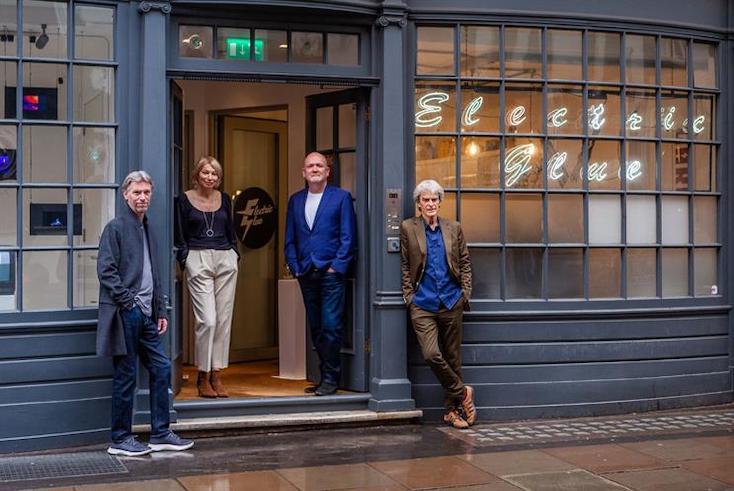De-personalisation & the business of scale-ups

Dominic Mills discusses personalisation and why Pippa Glucklich has joined a low-profile media indie
The general consensus is that Google’s announcements last week about tightening up its privacy protocols in pursuit, as it calls it, of a “more privacy-first web”, represent (among other things of course) a further nail in the coffin of personalised advertising.
Here’s a good summary from the US, albeit quite technical, of industry responses to the Google move.
Certainly, taken with Apple’s moves, the overall direction of travel by two of the big three is clear.
Hooray. I’m all in favour. I always believed personalisation was a chimera. It’s like saying goodbye to a friend who wasn’t that much of a friend anyway.
But will it make any difference to the consumer’s advertising experience?
There are some, like GroupM’s Brian Wieser who think that one consequence is that brands will focus less on bottom-of-the-funnel performance targeting — the more performance you go, the more personalised the data you need — and more on broader brand-building efforts.
My own question is: will anyone actually notice a drop-off in so-called personalisation? I say ‘so-called’ because in my experience what passes for personalisation often isn’t. It’s either de-personalised or tries but gets it wrong — which I think is worse especially if it’s on the basis of age and sex.
At the most extreme, I see and hear ads that either think I’m a student, when pretty much all the clues I drop would indicate I left student life behind years ago, or a woman, again when the sum or bias of my activity would point people towards my masculinity. It’s often so out of kilter it makes me laugh.
Anyway, while Google and Apple are going one way — whether to avoid regulatory action, because they see competitive advantage, or because they genuinely believe in what they are doing (take your pick) — Facebook seems to be sticking to its guns.
As I noted last week, it is assiduously promoting to advertisers the benefits of targeting and claiming it is their friend, while Apple is the enemy.
Except not quite. Here’s a fascinating piece of research published by Facebook — hat tip for the alert to Simon Andrews’ Fix newsletter — in conjunction with GroupM.
And it’s interesting on two levels: one, it seeks to show, on Facebook obvs, that brand marketing can drive short-term sales at a comparable cost and in some cases (hospitality, financial services and packaged goods) at a lower cost per incremental sales. Bold stuff.
Of course the second point on which this is interesting is that it is a bit of a ‘have-cake-and-eat-it-too’ strategy. Look, it is saying to advertisers, “we know we bang on about the benefits of targeting and personalisation, but just in case we have to reverse direction on that we’re really quite good at the un-targeted stuff too, and it’s just as effective and sometimes costs less.”
All bases covered, Mr Z.
Electric who?
Like many, I guess, I was pretty surprised to see the news that former Starcom and Amplify boss Pippa Glucklich has joined media indie Electric Glue as CEO.
From network to Electric who? The name was vaguely familiar but I confess I knew nothing about it. It’s as if, as one gossip suggested, Grimsby Town had signed Marcus Rashford.
That’s funny, but wrong. A better analogy might be that Keeley Hawes was going to headline a season at Eden Court Theatre in Inverness, to which the reactions might be: what????….hmmm….different…interesting…yeah, I can see a certain logic.
[advert position=”left”]
That’s because Electric Glue, while low-profile to the point of anonymity in its seven-year existence, has a fine pedigree. It’s a media indie that is part of Sir John Hegarty’s Soho Garage incubator, and run by former BBH media director Kevin Brown and ITV planning director Simon Orpin.
So just on a simple level therefore, Glucklich’s hire is both a statement of intent and a move to give the agency some much-needed profile.
It has some interesting clients — Trainline and Rightmove, for example — and its location within the Garage eco-system means it is a point-of-call for start-ups and, those in the next stage, scale-ups.
It is this latter category that represents a sweet spot, not just for Electric Glue, but also any media agency, because scale-ups are those entities at that critical point where they need to spend big to build the brand.
But they often don’t have a clue about media so while they could go to a large network, chances are they could easily get lost and, at worst, subject to a cultural clash.
But in a media indie — and in an age when buying scale is less of a differentiator — they will more likely get both the hand-holding they need and the owner-manager to owner-manager dynamic that means they speak a similar language.
You can see exactly why this might be attractive to someone who, like Glucklich, has done her time in network land and is ready for something new and different.
By a rough calculation, the indies — led by the likes of 7stars, Goodstuff and Total — have a 10% share of the £20 billion display media spend. That gives them a solid chunk to build off, but a big target to aim at, given that much of the new money coming into the market is from these self-same scale-ups.
Which brings us round in a neat circle: just as Electric Glue sees the scale-ups as its opportunity, so the appointment of Glucklich represents its own move to scale-up.



